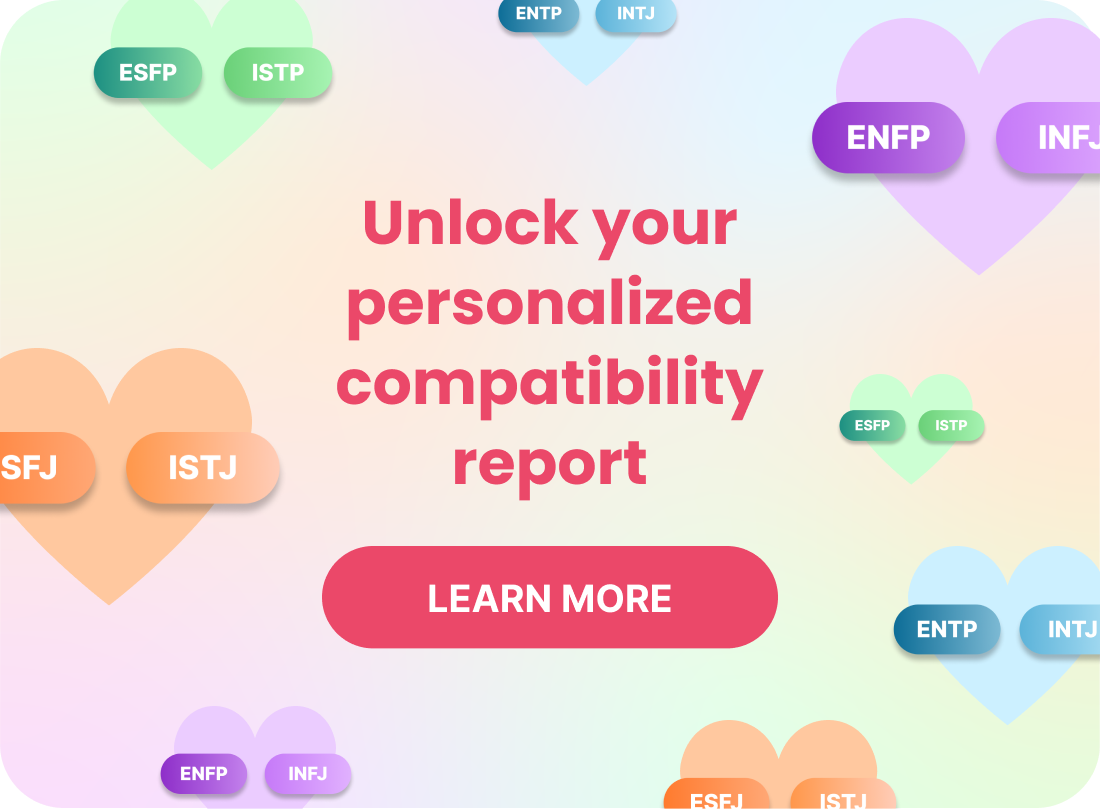16 Personality Types Dealing with Emotions

Each personality type processes their emotions in different ways. Some burst into tears at the mere thought of a puppy, while others haven’t cried for decades. Some prefer to be open about their feelings, whilst others keep their card close to their chest. This week, we explore how each personality type deals with emotions.
INFP
INFPs feel everything very deeply. They experience a wealth of nuanced emotions on a daily basis. But you’d never guess. INFPs are private about their emotions and come across as composed most of the time. They’ll only express their emotions if they truly trust you, but even then, it’s rare for them to be completely open about their feelings.
ENFP
ENFPs are in very touch with emotions. They’re passionate people who feel strongly about certain things, but their feelings can change quite suddenly. Despite being friendly and warm, ENFPs are actually quite private about their emotions, and it can take them a while to fully open up.
INFJ
INFJs are sensitive individuals, but they sometimes struggle to understand their own emotions. This is because they are highly in tune with other people’s emotions and can even confuse them with their own. INFJs like to talk through their feelings with others but there are very few, in any, people that they feel comfortable doing this with.
ENFJ
ENFJs are outwardly emotional people. They are highly aware of other people’s feelings, particularly those who are close to them. ENFJs don’t take much time to introspect and process their own emotions, but there’s only so long they can put this off. ENFJs aren’t afraid to show their emotions and are comfortable talking about their feelings with loved ones.
INTP
INTPs often struggle to process their feelings. They don’t enjoy the unpredictable and irrational nature of emotions, be it their own or other people’s. They’ll sometimes try to analyze them in a logical way. If they can’t understand their emotions or they don’t have time to work through them, they can end up repressing them.
ENTP
ENTPs are skilled at picking up on other people’s emotions and noticing subtle changes in body language or tone of voice. However, ENTPs are less adept at processing their own emotions. ENTPs often require quite a lot of time to introspect and fully understand what they are feeling and why.
INTJ
INTJs are not outwardly emotional individuals, but they feel things more deeply than most people realize. They are naturally introspective people, and this helps them take the time to process their feelings. INTJs are extremely private and rarely express their feelings outwardly. They sometimes struggle to understand what other people are feeling.

ENTJ
ENTJs can find it difficult to process their emotions. They are highly logical people who focus on efficiency. ENTJs sometimes ignore their emotions because they view them as a hindrance to achieving their goals. This can backfire in the long run and result in unexpected outbursts of emotions such as anger.
ISFJ
ISFJs are innately emotional people. However, they tend to focus on other people’s emotions rather than their own. ISFJs are highly in tune with the needs of others, and this constant focus on others can come at the expense of taking time to process their own emotions. ISFJs will often only talk to close friends about their feelings.
ESFJ
ESFJs are expressive people. They’re one of the personality types who are most likely to talk openly about their emotions as this helps them to process them. They are highly aware of other people’s feelings and can sometimes find it hard to differentiate their own emotions from those of their loved ones.
ISTJ
ISTJs can find dealing with their feelings uncomfortable. They value logic and consistency, two things that are definitely not associated with emotions. ISTJs are very private people, and they won’t share their feelings unless they completely trust you. It can take ISTJs a while to process their emotions.

ESTJ
ESTJs are not openly emotional people. They’re goal-oriented, and they see emotions as an unnecessary distraction. ESTJs often bury their feelings. When they do talk about their emotions, they’ll talk about them in a matter-of-fact way and focus on the practical implications.
ISFP
ISFPs are definitely emotional people. They are deeply passionate and, despite appearing reserved, they have a lot going on underneath the surface. ISFPs are highly in tune with what they feel and aren’t easily able to detach from their emotions. ISFPs are private people, and they often express their emotions through art.
ESFP
ESFPs are highly emotional individuals. They feel everything very deeply, and the intensity of their emotions is so strong that they can find them completely overwhelming. ESFPs are one of the personality types who are most comfortable with expressing their emotions and sharing their thoughts.
ISTP
ISTPs struggle to understand their emotions. They do feel things, but strong emotions can make them uncomfortable. ISTPs are talented at solving practical problems in a logical manner, but emotions are irrational, so they’re unable to apply their usual problem-solving abilities. ISTPs are very private about their emotions and will rarely express themselves.

ESTP
ESTPs are uncomfortable processing their emotions. They often find distractions and keep themselves busy in order to avoid having to deal with their feelings. ESTPs are reluctant to express their emotions because they can’t stand the thought of being seen as weak. ESTPs are highly observant and quickly recognize the emotions of others.
Final thoughts on how the 16 personality types deal with emotions
It’s clear that each of the 16 personality types has their own unique way of dealing with emotions. Some may prefer to express themselves openly, while others have a tendency to internalize their feelings.
But regardless of our personality type, it’s essential to acknowledge and understand our emotions in order to effectively manage them. Personality types can help us to recognize our behaviors when it comes to handling emotions and navigate through difficult situations to lead more fulfilling lives.
If you enjoyed this article, you might also like our blog about how to know when you’ve found your perfect personality match.




